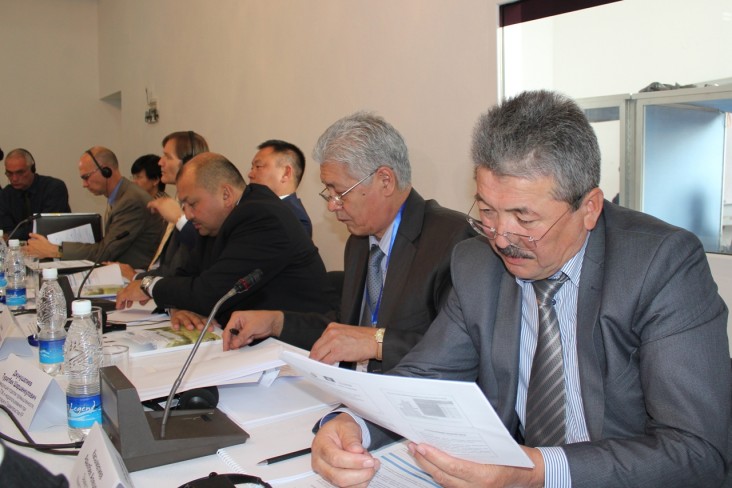
July 2015—Mining is among the most promising sectors for economic growth in the Kyrgyz Republic. In recent years, however, conflicts between mining companies and local communities have slowed production rates and decreased investor attraction to the sector.
A 2012 survey of communities located close to mining sites showed that over half of respondents had a negative attitude toward mining companies. Over 60 percent of respondents were concerned with potential environmental damage from mining operations, and a large number of respondents believed that mining companies did not contribute enough to the development of local communities. Local residents organized protests against mining operations near their communities, frequently blocking roads used by the companies.
The survey revealed that one of the major reasons for citizen distrust was a lack of information provided by the government and mining companies regarding exploration plans and the potential hazards and benefits to the community.
In response to this communication gap, from 2012 to 2015, USAID helped the country’s State Agency for Geology and Mineral Resources—which is responsible for informing citizens about policy changes and legal regulations—improve its outreach efforts. The State Agency conducted 19 information campaigns in local communities in Talas, Leylek, Chatkal, Ala-Buka, Chon-Alay and Naryn districts that are located near exploration sites. The campaigns included public hearings, roundtables, meetings with mining companies, individual and group consultations, newspaper publications, and TV and radio broadcasts.
During the campaigns, citizens addressed their concerns directly with government representatives and received information about mining legislation, environmental regulations, and the mining companies’ contribution to national and local budgets. USAID distributed 18,000 bulletins and 10,000 newspapers explaining the extraction process, mining safety measures, environmental impact and protection, and types and volume of mineral reserves in the country.
Through its Local Transparency and Cooperation Initiative, USAID also established six permanent public reception centers where citizens receive reliable information on the mining industry. Each center provides about 30-40 consultations every month. In addition to individual and group consultations, the public reception centers organized over 90 workshops for over 2,000 citizens on legislation regulating the country’s mining industry.
"Consultations are changing people's behavior when it comes to the activities of mining companies,” said Gulnara Isbasarova, head of the public reception center in the Talas region. “In the beginning, citizens threatened to burn the property of mining companies, but now people are gradually beginning to realize that all the issues should be solved through negotiations."
In October 2014, the State Agency, with the support of USAID, organized a national conference where members of parliament, government representatives, mining companies, NGOs, local self-governance institutions and residents of communities affected by mining operations discussed major issues in the mining sector and ways to solve them in a peaceful way.
“National conference and awareness campaigns on the local level allow citizens to understand what benefits we receive from the mining industry. At the same time, investors must abide by environmental standards and rules. There is no need to block roads, but we must discuss all the issues in order to find solutions acceptable to all,” said Deputy Minister of Economy Adylbek Kasymaliev in opening the conference. Recommendations developed at the conference include conflict mitigation measures and further outreach activities in communities located near active or prospective exploration sites.
As a result of the Local Transparency and Cooperation Initiative implemented by the Eurasia Foundation of Central Asia, cooperation and trust have improved among citizens, local and national governments, and mining companies at the community and national levels. Between 2012 and 2014, the number of people in mining-affected communities holding a negative view of the mining industry decreased by 10 percent, helping to reduce the probability of conflict.
LINKS







Comment
Make a general inquiry or suggest an improvement.